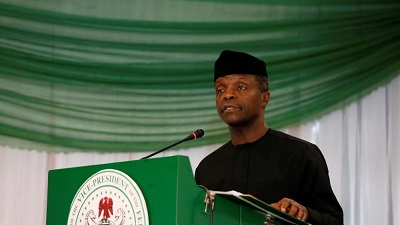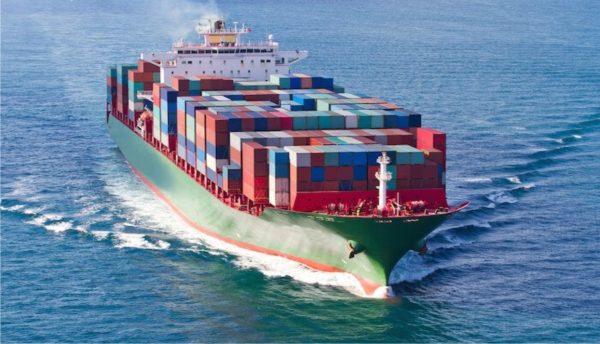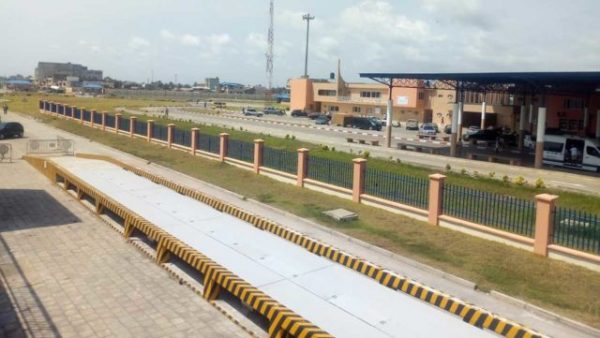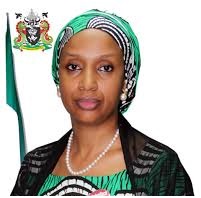Govt Agencies, Terminal Operators Defy Osinbajo’s Orders

- ANLCA, NAGAFF express disappointment
- SON spreads confusion
By Kenneth Jukpor
Nigerian maritime industry stakeholders have expressed disappointment over the insincerity of some government agencies and terminal operators at complying with the Ease of Doing Business directive handed down by the Acting President, Prof. Yemi Osinbajo.
SON called port stakeholders to a conference on, “SON Act 2015 and the Ease of Doing Business” without clearly highlighting areas where it has created seamless operations and ended up creating confusion.
The conference was marred with frivolous legal implications and obligations of the agency, whilst the participants had hoped to get information on how SON had enhanced its modus operandi to make the port environment and its procedures easier to undertake.
At the seminar, SON said that it had established a full-fledged Alternative Dispute Resolution desk within its Customer Feedback and Collaboration unit as a means of easing the cost of doing business in Nigeria; although this seems quite laudable, a participant stood up to debunk the initiative having been a witness of its non-functionality.
The Director-General of SON, Mr. Osita Anthony Aboloma had disclosed this in his opening speech of national stakeholders’ sensitization workshop where he was represented by the Director of Legal Services, Barrister Umaru Karu. He stressed that the agency’s mode of conflict resolution was by negotiation, mediation and conciliation.
Speaking with MMS Plus shortly after the programme, the Founder of the National Association of Government Approved Freight Forwarders (NAGAFF), Dr. Boniface Aniebonam said “the conference was expected to address SON’s new role in relation to the ease of doing business but that didn’t happen”
“The first, second and third speakers dwelt on SON’s legislative issues before the lead speaker dwelt on the ease of doing business. But, at the time the fourth person was talking, the audience had lost interest as a result of the legal issues that were prioritized over the main issues that affect the ease of doing business with SON. A lot of the people came here to know the extent at which SON is ready to eliminate the impediments to trade from its operations.” He said.
According to Dr. Aniebonam, the need to have an agenda to enhance the ease of doing business already highlights the failure on the part of government regulatory agencies.
“As far as I’m concerned, the ease of doing business is an indictment to the agencies of government because the extant laws, rules and regulations have always been there but they are never enforced. It was the lacuna on the part of government agencies that made people start doing things the way it suited them and this created the platform or void which the executive order hopes to cover.” Aniebonam stated.
On his part, the spokesperson of the Association of Nigeria Licensed Customs Agents (ANLCA), Dr. Kayode Farinto who represented the ANLCA National President, Prince Olayiwola Shittu, lamented that SON hasn’t done much to enhance the ease of doing business with the agency, pointing out that the agency was yet to upload its Standard Operating Procedures (SOPs) on its portal.
“We came here to look at SON in relation to your modus-operandi. We talked about Standard Operating Procedures for SON sometime ago. Up to this moment, we are yet to see the SOPs of SON on the portal and I heard one of the speakers say it is available in this conference. The people in this auditorium are less than 3% of the entire Nigerian populace that do business with SON and Nigerians need to know SON’s Standard Operating Procedures” Farinto stressed.
According to Farinto, SON had turned into a revenue generating body instead of embracing its regulatory functions. He noted that this led to the neglect of land borders which has paved way for smuggling of sub-standard products into the nation.
“I think there should be legislation where whoever is unpatriotic with Nigeria by bringing such commodity must face serious punishment, but SON seems to have lost its objective with revenue generation now prioritized more than regulations of standards. SON has left our border stations porous for fake and sub-standard goods to be imported. Our disagreement is for the progress our country because we must move forward. The most important thing is that Nigeria must begin to have a rethink, there should be attitudinal change. Gone are the days when you can bring in sub-standard goods into our country and you feel you want to make money.” Farinto argued.
Barr. Umar Kawu had earlier noted that the SON Act and the Ease of Doing Business posed a big challenge towards their collective efforts to do the right thing for businesses whether small or big, importing or exporting, the nation’s agricultural and agro-allied sector, manufacturing, industrial and construction sectors among others.
According to him, “One may ask, what is the relationship between the SON Act and the Federal Government’s initiative of Ease of Doing Business? The SON Act passed in 2015 has certain unique provisions towards ensuring that a level playing field is created for our manufacturers, importers, traders and exporters. These provisions include; removal of substandard products from the market place for a period of 90 days without judicial intervention, proceeding against offenders and enhance penalties against persons who deal with products that do not comply with any mandatory industrial standard(s)”.
He disclosed that the punishments range from fine of not less than N1,000,000 or 15% less of the value of the product to fine of not less than N200,000 or 20% of the value of the product.
“The entire essence of these provisions is to ensure that compliant business persons are not disadvantaged by persons who engage in the manufacture, importation or exportation of substandard products. Where every person concerned with manufacture, importation, sale of products do so acting on the same requirements, cost of doing business would become predictable as discipline would be brought into the system.
“It is the same discipline that the Ease of Doing Business initiative seeks to bring into our system and where cost variables are minimized, price divergence is eliminated. On our part, we solemnly resolve that though the law has clothed SON with enormous powers, these powers would only be exercised as a matter of last resort. Our preferred mode of conflict resolution is by negotiation, mediation and conciliation. Towards this end, SON has established a full-fledged Alternative Dispute Resolution desk within its Customer Feedback and Collaboration unit. This is also a means of easing cost of doing business. Here, therefore lies the link between SON Act 2015 and the ease of doing business in Nigeria”, he explained.
MMS Plus browsed through the SON website to check for its Standard Operating Procedures but as at press time- there was none.
Findings have revealed that while some terminal operators have introduced new charges called transfer fees on consignments destined for inland container depots, Kaduna Inland Dry Port in particular in a move to scuttle the new government’s vision of seamless trade, the Standards Organization of Nigeria (SON) and the Nigerian Police have also been noted as obstacle to enhanced port operation under the ease of doing business order.







